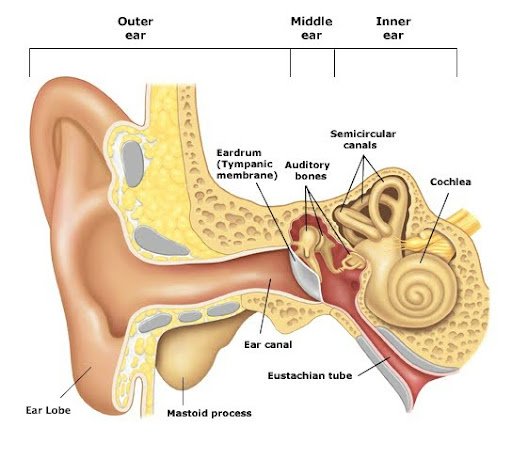Understanding Ear Infections: Types, Symptoms, and Causes
Ear infections are a common health issue affecting millions worldwide, particularly children. They can occur in both adults and children, causing discomfort and, in some cases, significant health complications.
Types of Ear Infections
Ear infections can be classified into three main types, each affecting different parts of the ear:
Otitis Externa (Outer Ear Infection) - Commonly known as "swimmer's ear," this type involves the outer ear canal. It typically occurs when water remains in the ear after swimming, creating a moist environment that aids bacterial growth.
Otitis Media (Middle Ear Infection) - This is the most common type among children. Otitis media type of infection is occurs when fluid builds up behind the eardrum & becomes infected. Various factors like allergies, sinus infections, or even a common cold can lead to this condition.
Otitis Interna (Inner Ear Infection) - Also known as labyrinthitis, this is a serious condition that can affect both hearing and balance. It is often caused by a virus or, less commonly, by bacteria.
Risk Factors
Several factors increase the risk of developing an ear infection:
Age: Young children and infants are more susceptible due to their shorter and narrower Eustachian tubes.
Upper Respiratory Infections: Colds, flu, and allergies can lead to congestion and swelling of the nasal passages, throat, and Eustachian tubes.
Poor Air Quality: Exposure to tobacco smoke or high levels of air pollution can increase the risk.
Seasonal Factors: Ear infections are more common during the fall and winter when colds and flu are prevalent.
Symptoms of Ear Infections
The symptoms of an ear infection generally include several common signs:
Ear Pain: This is the most frequent symptom & can range from a mild to severe annoyance, affecting sleep and daily activities.
Hearing Loss: Fluid build-up can muffle sounds, leading to temporary hearing impairment.
Drainage: An unusual fluid, sometimes pus or bloody, may drain from the affected ear.
Fever: Especially in children, a fever might accompany an ear infection.
Dizziness: When the infection affects the inner ear, it can lead to vertigo or a loss of balance.
Causes of Ear Infections
Understanding the causes is crucial to prevention. Ear infections result from viral or bacterial infections. Factors contributing to the likelihood of developing an ear infection include:
Age: Young children are more susceptible due to less developed eustachian tubes.
Upper Respiratory Infections: These can increase the risk as they may cause congestion and swelling of the nasal passages, throat, and eustachian tubes.
Water in the Ear: Prolonged moisture in the ear canal from swimming or bathing can lead to outer ear infections.
Allergies: Chronic allergies can lead to swelling and blockage of the eustachian tubes.
Environmental Irritants: Exposure to tobacco smoke & high level of air pollution can increase the risk of ear infection.
Complications
If left untreated, ear infections can lead to serious complications such as:
Hearing loss
Spread of infection to nearby tissues
Eardrum perforation
In rare cases, meningitis or brain abscess
Preventative Measures
Preventing ear infections involves several practical steps:
Keep Ears Dry: After bathing or swiming, dry your ears thoroughly with a towel or use a hair dryer on a low setting.
Avoid Smoking: Exposure to smoke and pollutants can be reduced by avoiding smoking areas.
Manage Allergies: Keeping allergies under control can help prevent the inflammation that leads to ear infections.
Practice Good Hygiene: Frequent hand washing & avoiding close contact with sick individuals can prevent upper respiratory infections.
Ear InfectionTreatment
Treatment for ear infections varies, depending on the type and severity. Mild cases might only require pain management and observation, while more severe infections could necessitate antibiotics. Consult a healthcare professional for the proper treatment.
Conclusion
JIET Hospital in Jodhpur, Rajasthan, stands out for its comprehensive approach to diagnosing and treating ear infections. With a dedicated team of ENT specialists, JMCH is equipped with advanced diagnostic techniques and tools to accurately identify the type of ear infection.
For residents of Jodhpur and surrounding areas, JIET Hospital represents a reliable healthcare choice for the effective management and treatment of ear infections, contributing to the overall health and well-being of the community. For ear infection treatment at JIET Hospital, Jodhpur, you can contact the number 9950059980 or visit the JIET Hospital website.





